7 Caucasus pies you absolutely must try
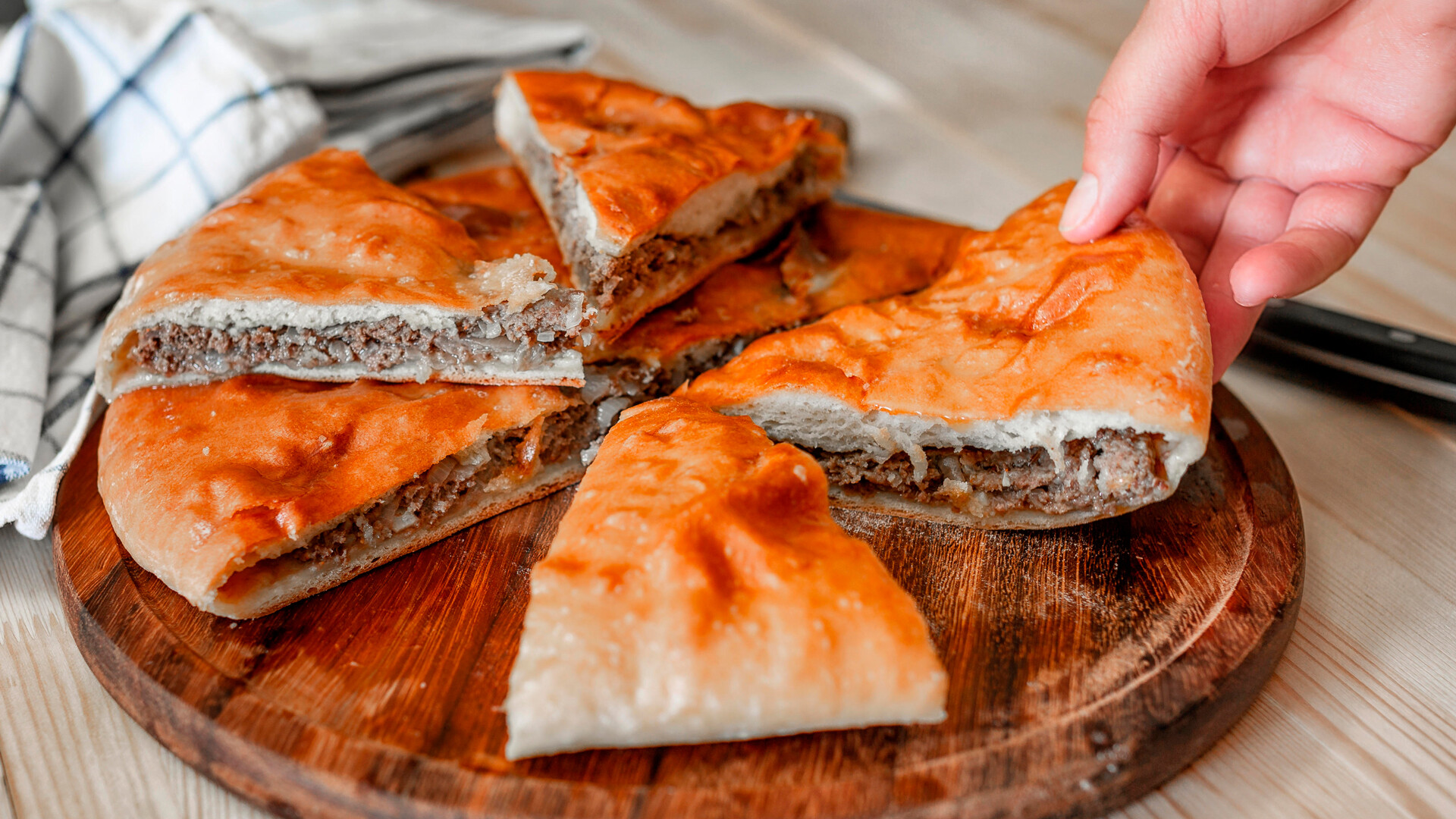
1. Ossetian pie
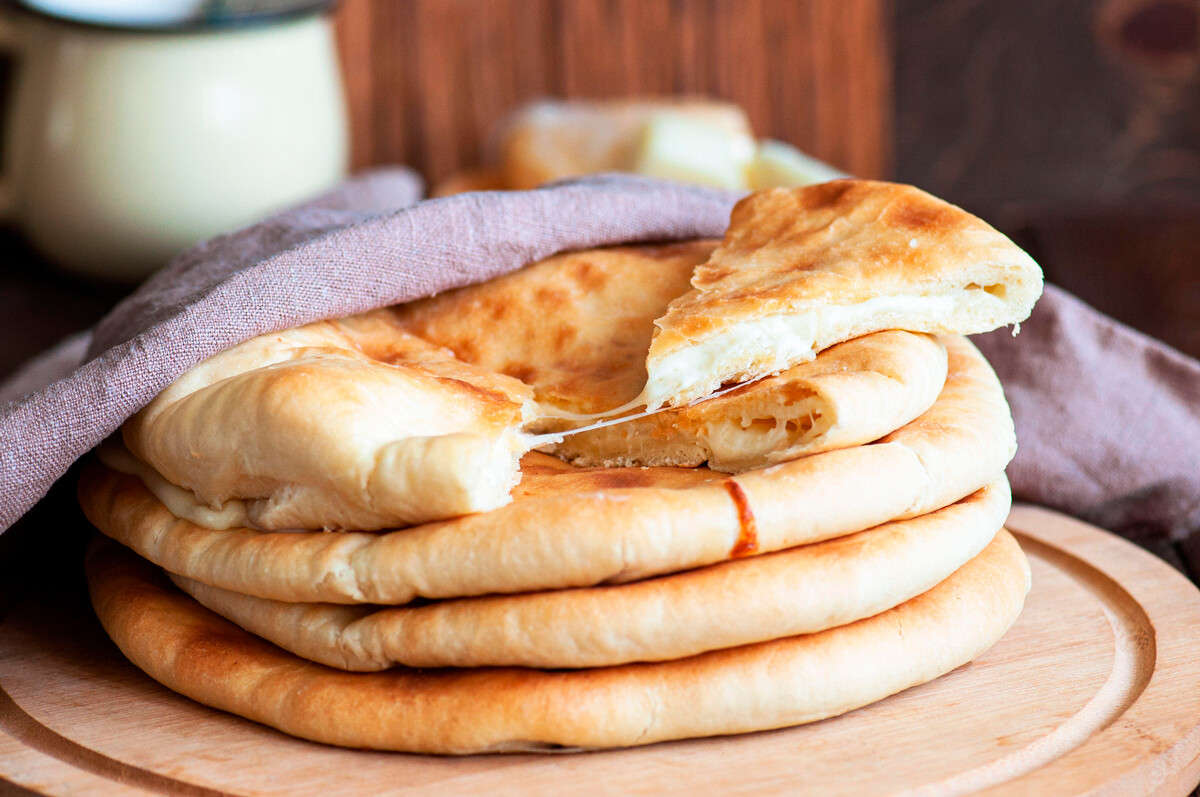 Ossetian pie with cheese.
Ossetian pie with cheese.
Round or triangular pies that have a 30-40 centimeter diameter with different fillings are made in North Ossetia for religious and official holidays. For joyous occasions, hostesses put three pies on the table, which symbolize God, the sun and the earth. Only two pies, however, are made when there’s a sorrowful feast, such as a funeral, because the deceased will never again see the sun.
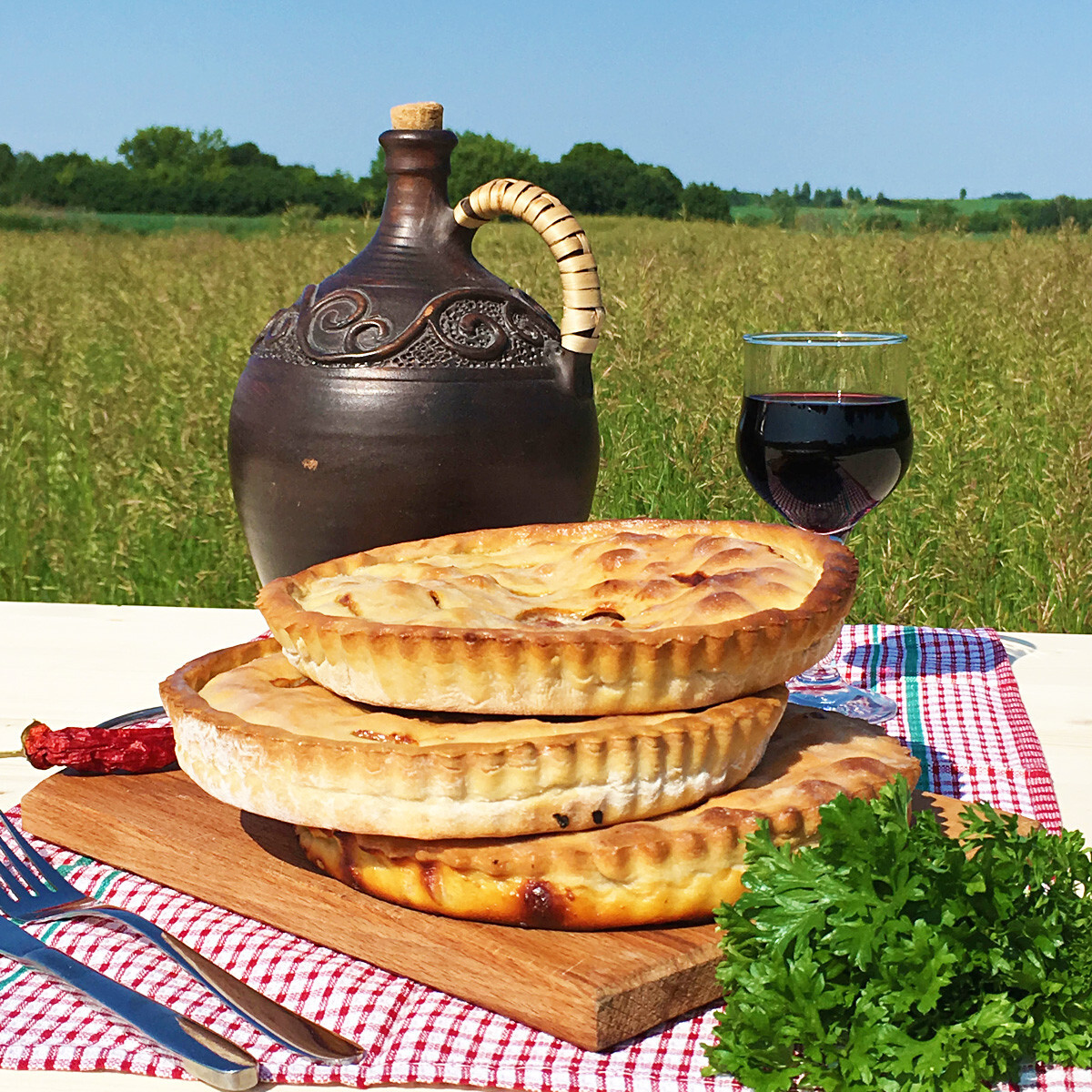 Ossetian pie has become so popular with Russians that you can find them in every city, as hundreds and even thousands of shops make this popular Caucasian dish.
Ossetian pie has become so popular with Russians that you can find them in every city, as hundreds and even thousands of shops make this popular Caucasian dish.
The most popular Ossetian pies are made with minced meat (fyddzhin), beet leaves/greens (tsakharadzhin), cheese (ualibakh), and potatoes (kartofdzhin).
2. Chudu
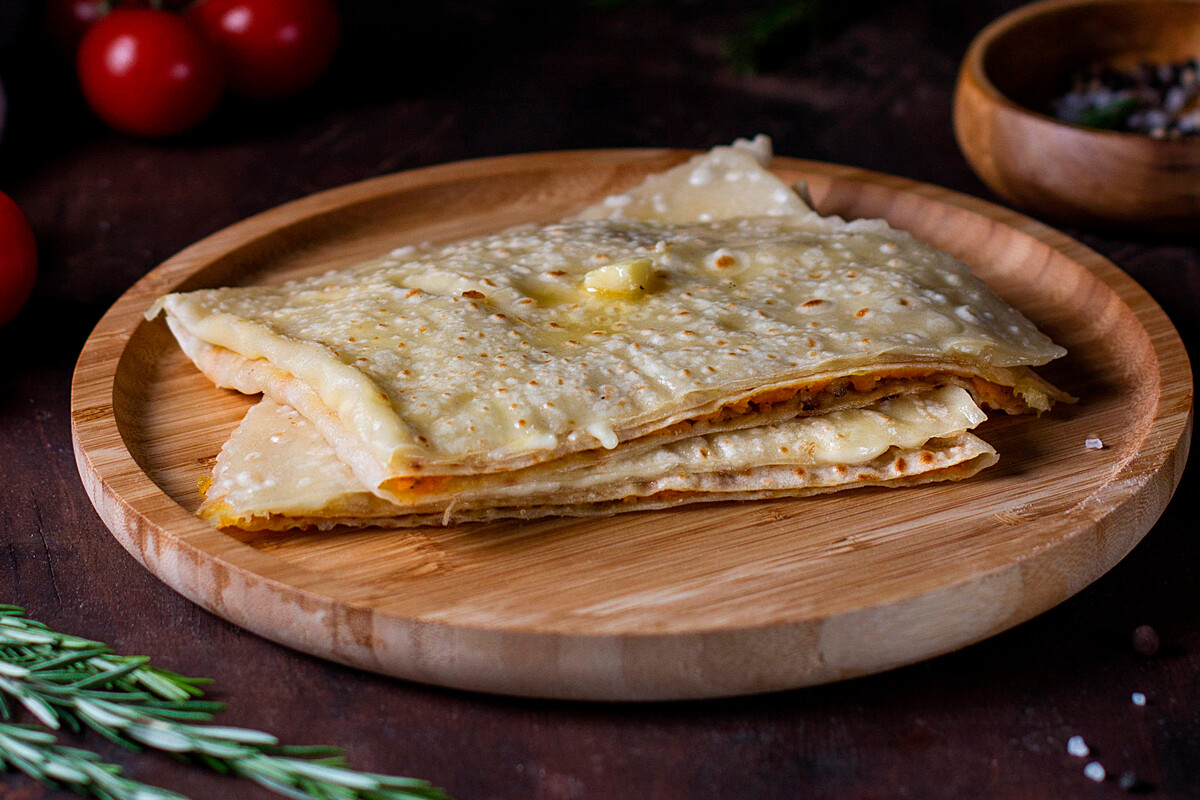 Chudu are made from both unleavened dough and yeast dough.
Chudu are made from both unleavened dough and yeast dough.
This stuffed flatbread, fried on a dry pan, is widespread in Dagestan, Ingushetia, Chechnya, and Kabardino-Balkaria. Chudu are round or have a semi-circular shape. They’re made from both unleavened dough and yeast dough. Sometimes the dough is mixed with ayran (a fermented milk product).
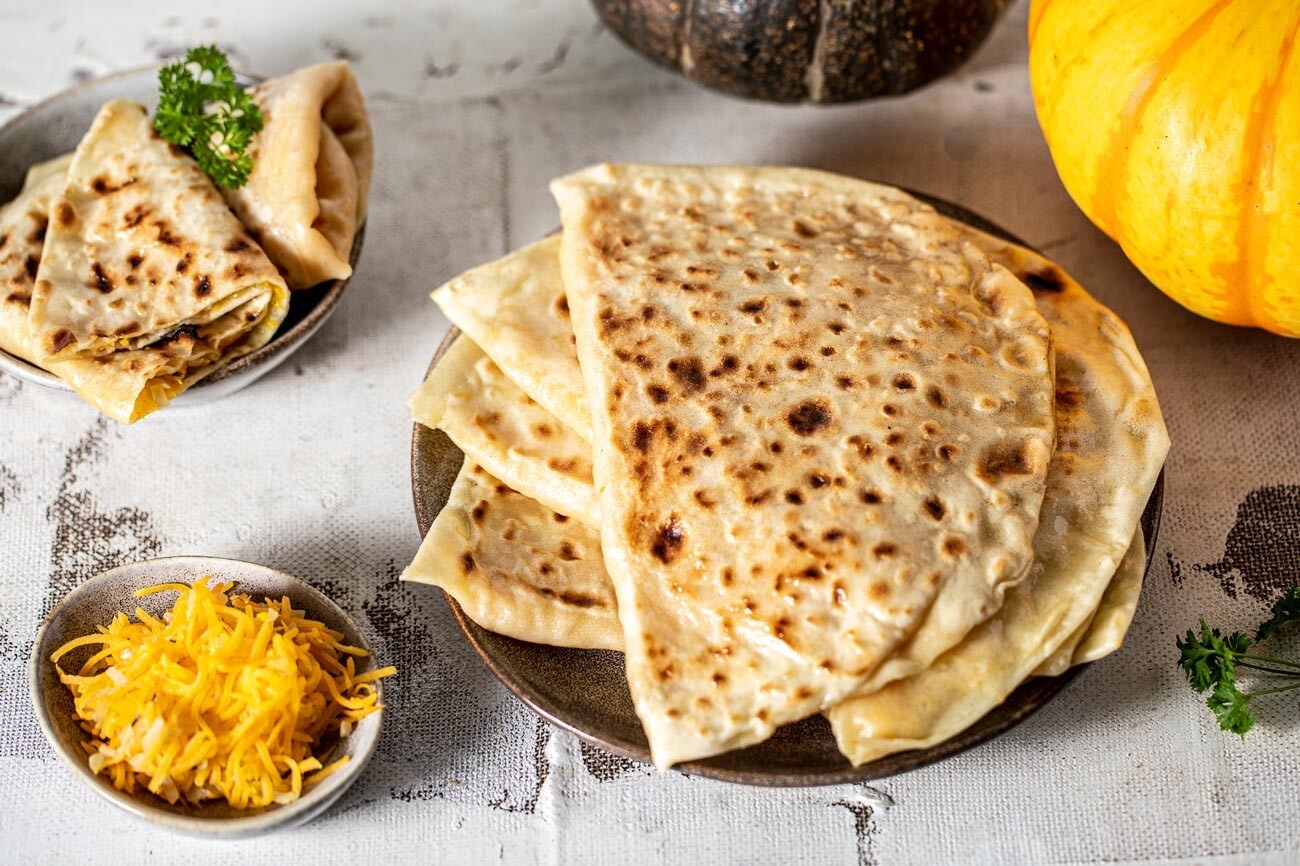 Chudu with pumpkin.
Chudu with pumpkin.
There are chudu with meat – usually mutton or beef (et chudu), with cottage cheese (bishlak chudu), with pumpkin (k’abak chudu), with sour milk (chiy chudu); there’s also a lot of different varieties with herbs – using onions, nettle, orach, or sorrel.
3. Khychin
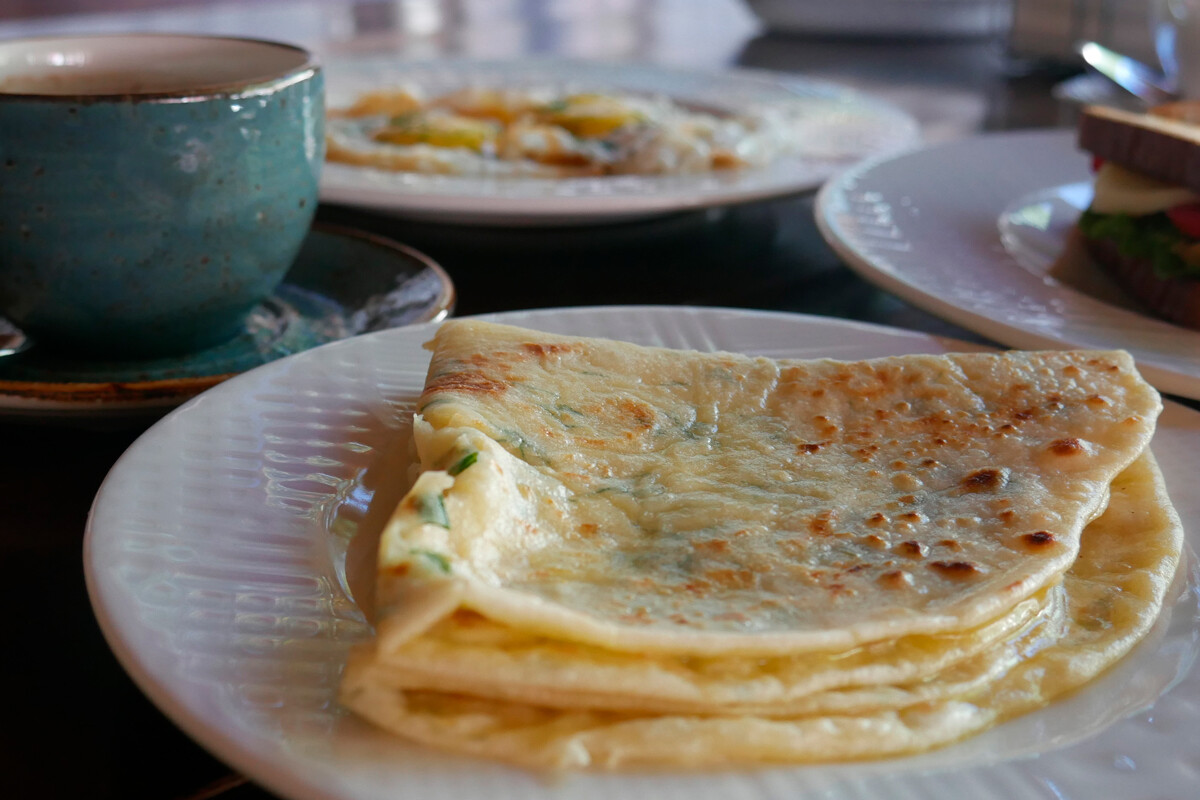 Khychin with herbs.
Khychin with herbs.
This juicy flatbread in the shape of the sun is an obligatory dish at dinner in the Karachay-Cherkessia and Kabardino-Balkaria republics. The Balkars bake them thin and flat, while the Karachays bake them very puffy with a lot of filling. In the olden days, they were baked for religious holidays, today – for family feasts.
Classic cheese khychins are called khumuzhu khychin, but they are no less tasty with meat, cabbage, or potatoes.
4. Khingalsh
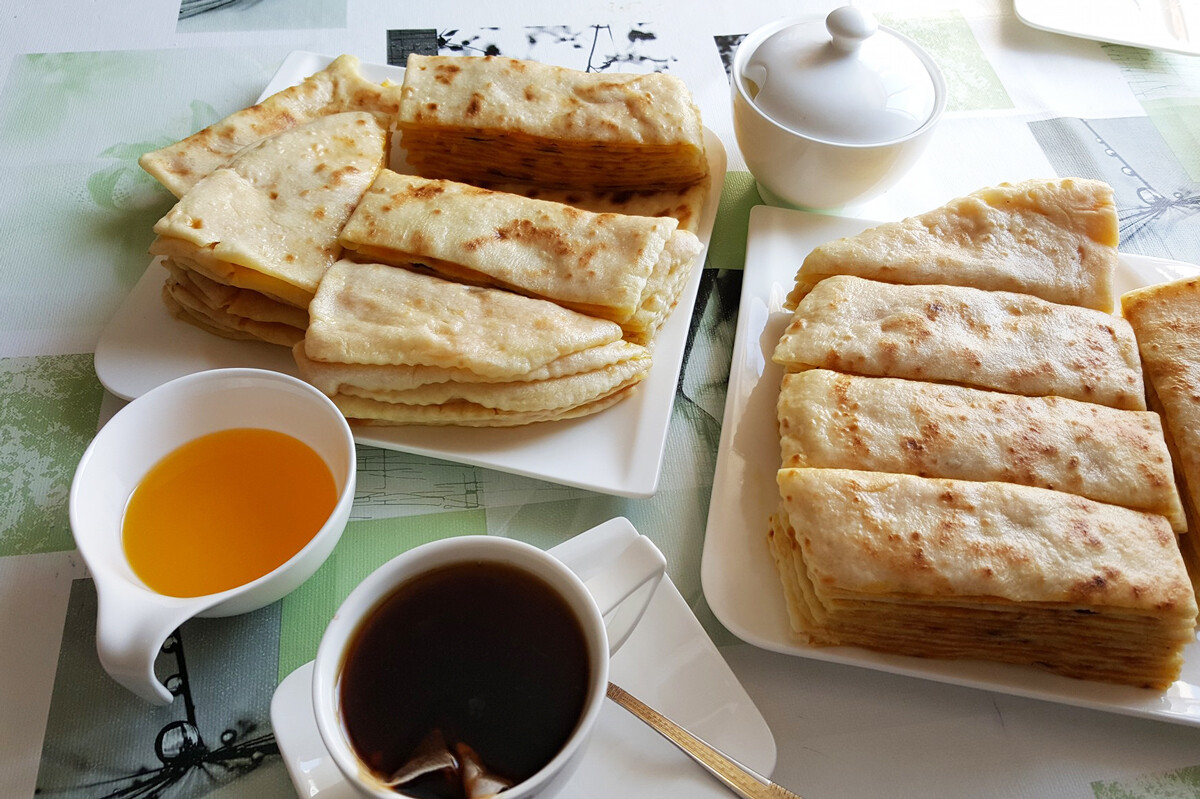 Khingalsh is a national dish in Chechnya and Ingushetia.
Khingalsh is a national dish in Chechnya and Ingushetia.
This flatbread made from dough mixed with corn or wheat flour with kefir or ayran is a national dish in Chechnya and Ingushetia. In the olden days, the tradition was to bake khingalsh in the size of a one-year-old baby’s forearm, and then offer these pies to relatives and neighbors when the child took its first steps.
Khingalsh is made with a pumpkin-onion filling. Despite the bitterness of the onion, the filling is sufficiently sweet; and some aromatic thyme is also added.
5. Cheburek with meat
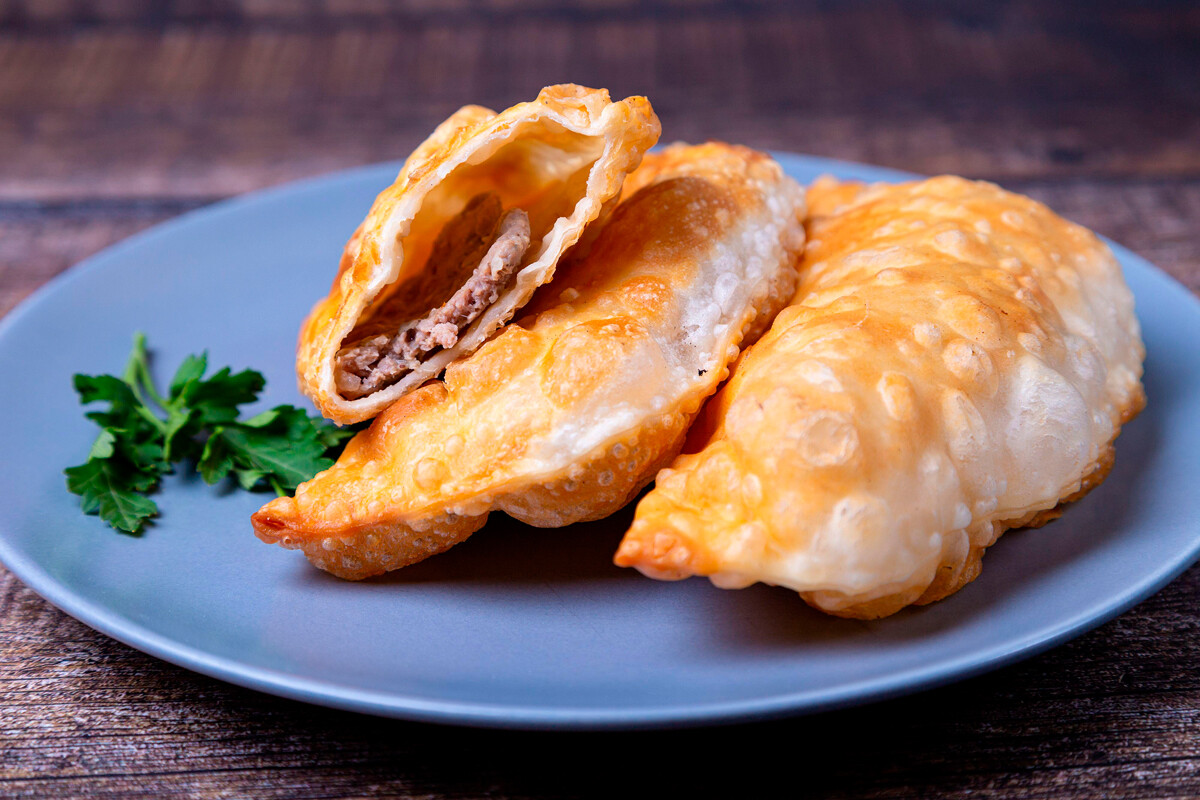 For some people, a cheburek is considered fast food, for others it’s a delicious gourmet treat.
For some people, a cheburek is considered fast food, for others it’s a delicious gourmet treat.
Chebureki are quite popular as street food in Russia; you can buy them at a train station, near a metro, or in cafes that are called cheburechnaya. However, this dish has been prepared in many regions of the Caucasus since ancient times.
In Ingushetia, fresh mutton is chosen when making chebureki; a lot of herbs (parsley or cilantro) and boiled rice are added to the filling. Another recipe for chebureki that’s also widespread is when the filling is prepared without rice but with ripe tomatoes.
Real Caucasus chebureki are made in a kazan on melted lamb fat. Cold milk products are a perfect match, such as kefir, ayran, or milk.
6. Michari
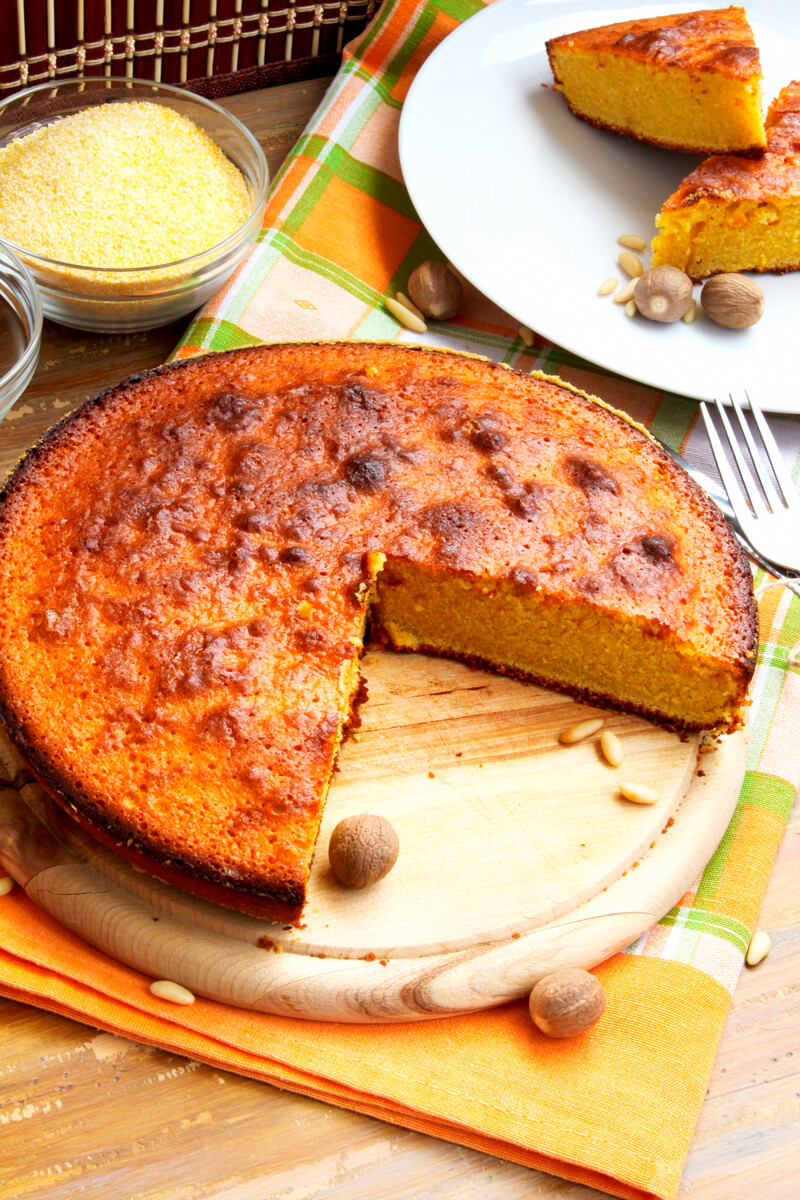 Michari is a corn pie or bread with onion.
Michari is a corn pie or bread with onion.
This corn pie or bread with onion – michari – is considered a traditional dish of the Kumyks, the largest Turkic people of the North Caucasus. This round pie has a diameter of 25 centimeters, and it’s made from corn flour with a pinch of soda and a large amount of kefir. The pie comes out high, porous, and entirely delicious thanks to the stewed onion.
The locals have a saying that highlights the large amount of onion in the pie and its nutritious qualities: “A half of a michari and a whole onion head are a proper intake for a man.”
7. Tsken
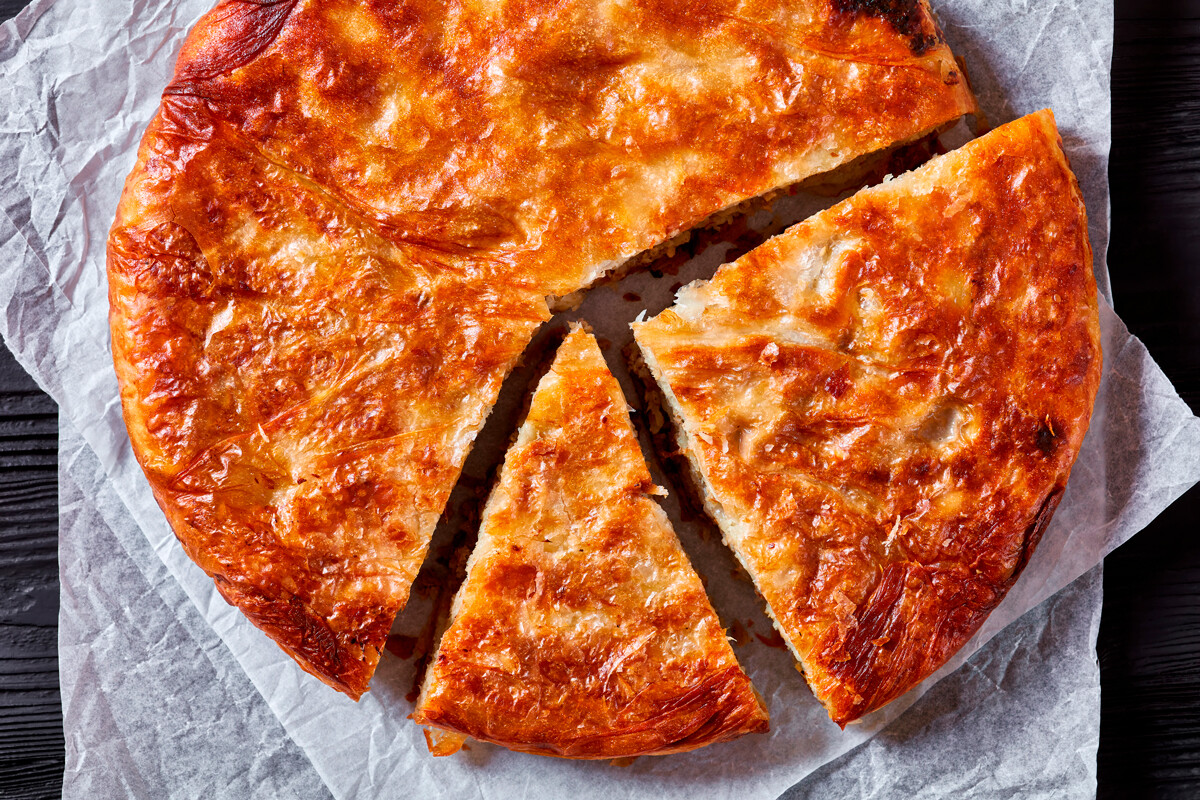 Tsken is very hearty.
Tsken is very hearty.
This is a meat pie that the Lezgins use for celebration; they live in southern Dagestan. The pie consists of mutton, potatoes, onions, walnuts, and spices. The filling alternates with thin layers of dough. This pie is very hearty – most often it’s prepared in an oven during the cold weather months.
READ MORE: Guubat: The Caucasus’ region most delicious sweet treat with nuts and honey (RECIPE)

